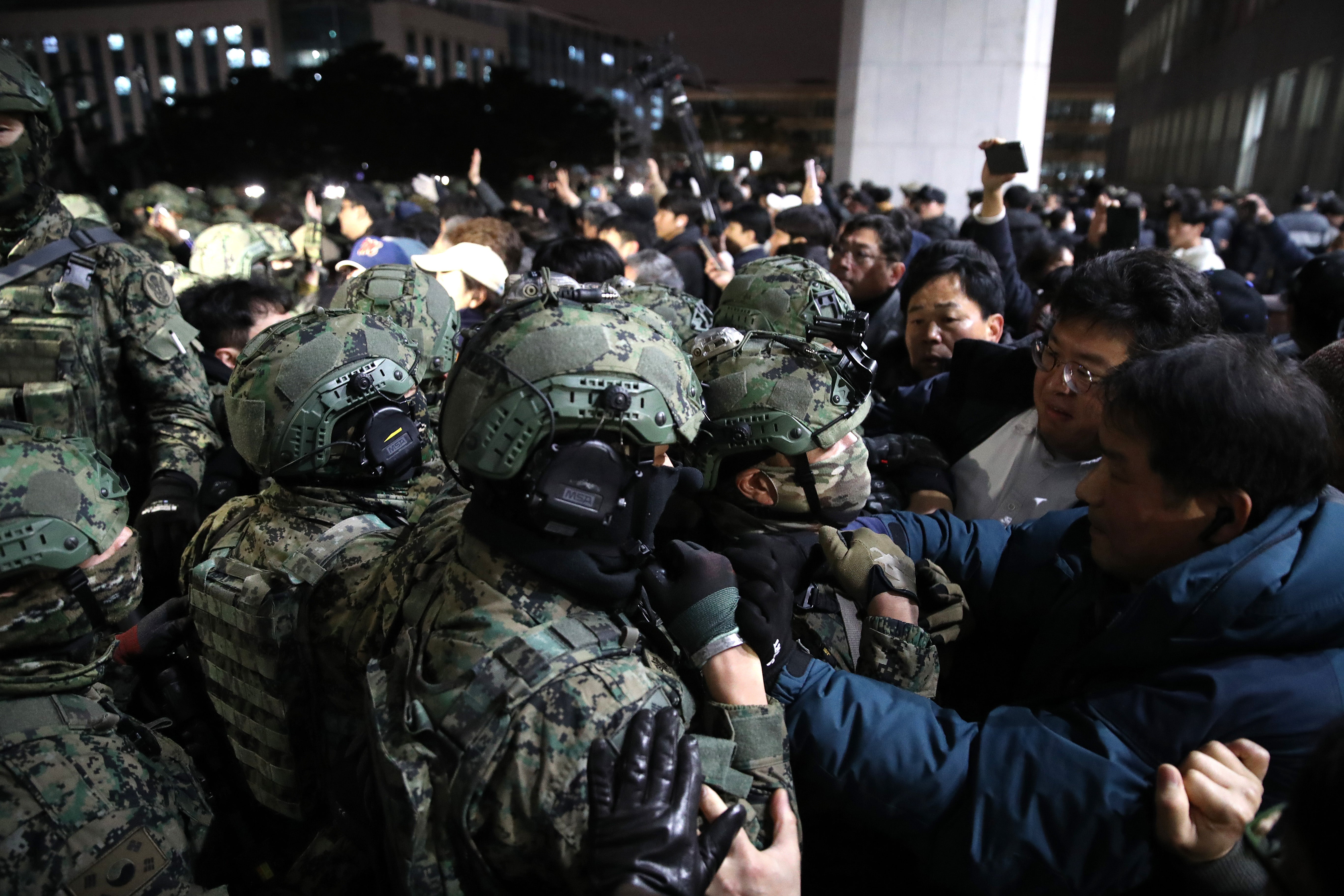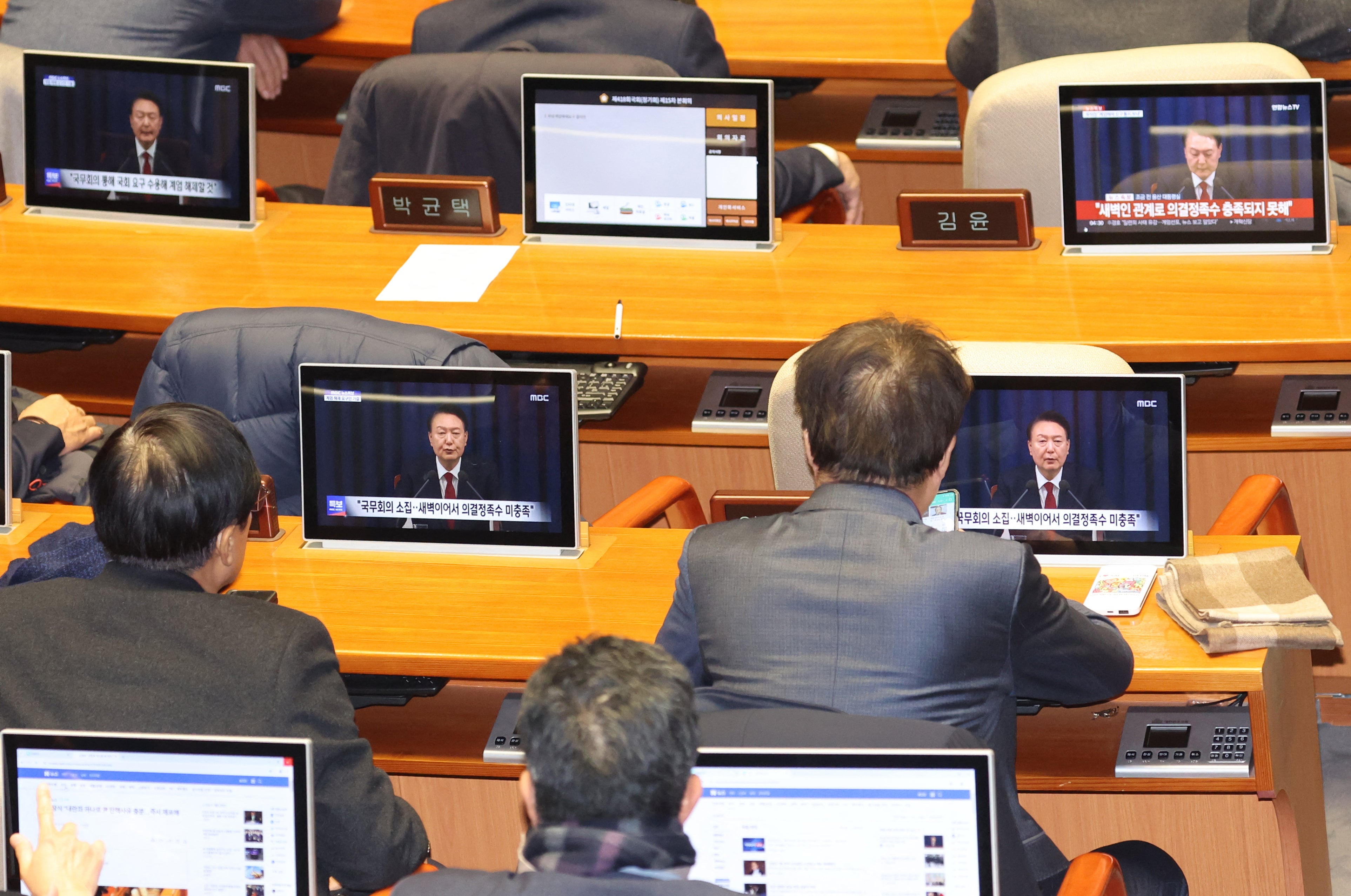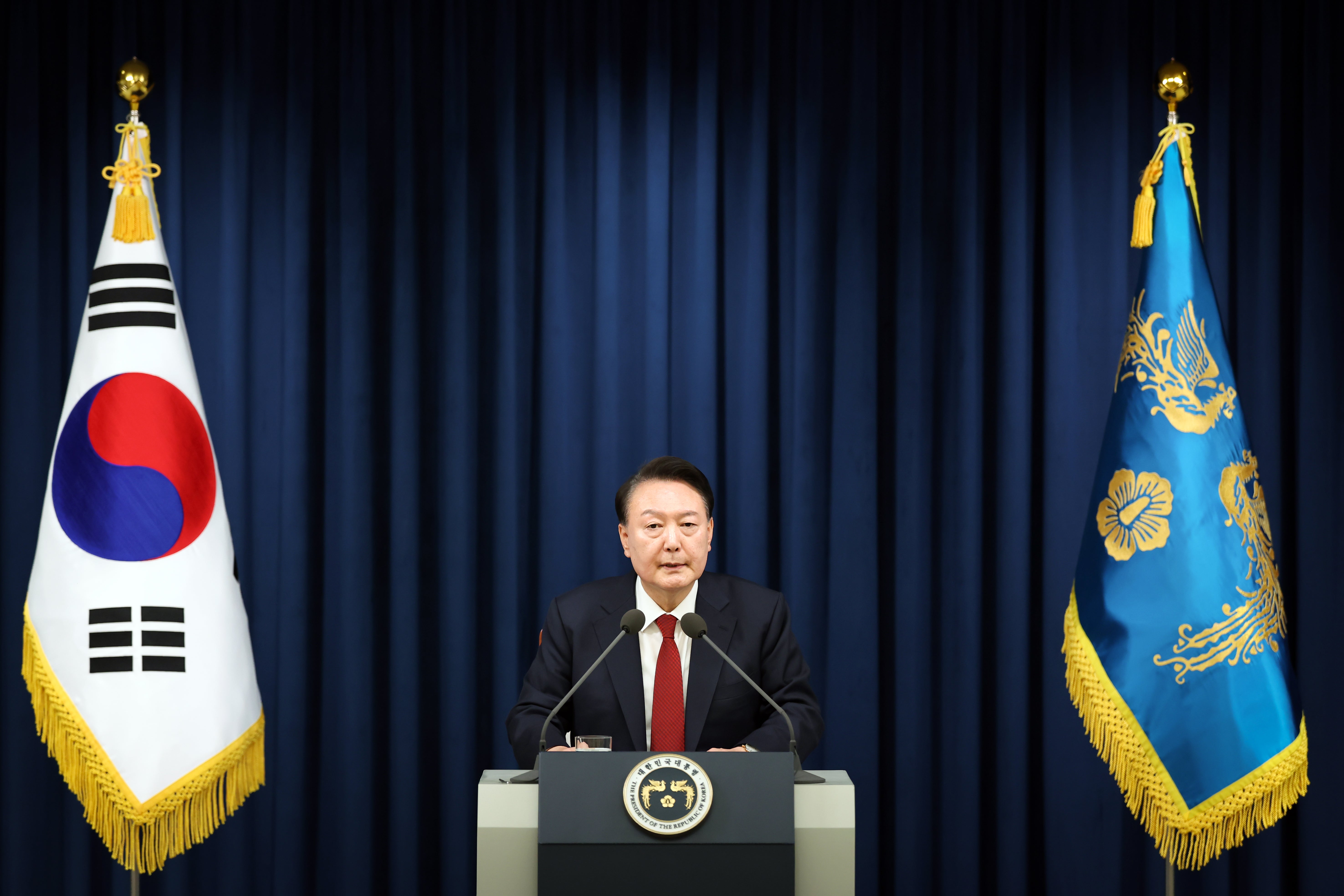Is it safe to travel to South Korea? Foreign Office update after martial law blocked
South Korea’s president Yoon Suk Yeol claimed he had declared martial law to protect the country from ‘anti-state’ forces

Your support helps us to tell the story
From reproductive rights to climate change to Big Tech, The Independent is on the ground when the story is developing. Whether it's investigating the financials of Elon Musk's pro-Trump PAC or producing our latest documentary, 'The A Word', which shines a light on the American women fighting for reproductive rights, we know how important it is to parse out the facts from the messaging.
At such a critical moment in US history, we need reporters on the ground. Your donation allows us to keep sending journalists to speak to both sides of the story.
The Independent is trusted by Americans across the entire political spectrum. And unlike many other quality news outlets, we choose not to lock Americans out of our reporting and analysis with paywalls. We believe quality journalism should be available to everyone, paid for by those who can afford it.
Your support makes all the difference.British nationals in South Korea have been advised to avoid political demonstrations following the president’s declaration of martial law on Tuesday.
By early Wednesday, the president reversed the decision after a dramatic night in which troops surrounded parliament, and lawmakers voted to block military rule.
Yoon Suk Yeol vowed to eliminate “anti-state” forces as he suspended parliament, banned political gatherings and ordered the end of a long-running doctors’ strike on Tuesday.
Following the declaration, the UK Foreign, Commonwealth and Development Office (FCDO) issued new travel advice warning British nationals to “follow the advice of local authorities” and “avoid political demonstrations”
“We are aware of the developing situation following a declaration of martial law in South Korea,” the FCDO added.
Advice on the politcal situation remains unchanged, with the FCDO still warning that “the level of tension and the security situation on the Korean Peninsula can change with little notice.”

A Downing Street spokesman described the situation as ‘very fast-moving’ and said the government was “closely monitoring developments in South Korea” as he urged British nationals to keep an eye on the Foreign Office’s advice.
Mr Yoon’s declaration follows the South Korean president’s ongoing struggles with the opposition Democratic Party, which retained its majority in the country’s parliament at elections in April.

In a televised address, the president accused the opposition of being sympathetic to North Korea, and said martial law would help “rebuild and protect” the country from “falling into the depths of national ruin”.
He said: “I will eliminate anti-state forces as quickly as possible and normalise the country.”
But the declaration of martial law has been criticised by both the Democratic Party and the leader of Mr Yoon’s own party.
The declaration can be overturned by a vote of the National Assembly, which some reports suggested had already taken place despite police officers and soldiers attempting to block the entrance to the parliament building in Seoul.